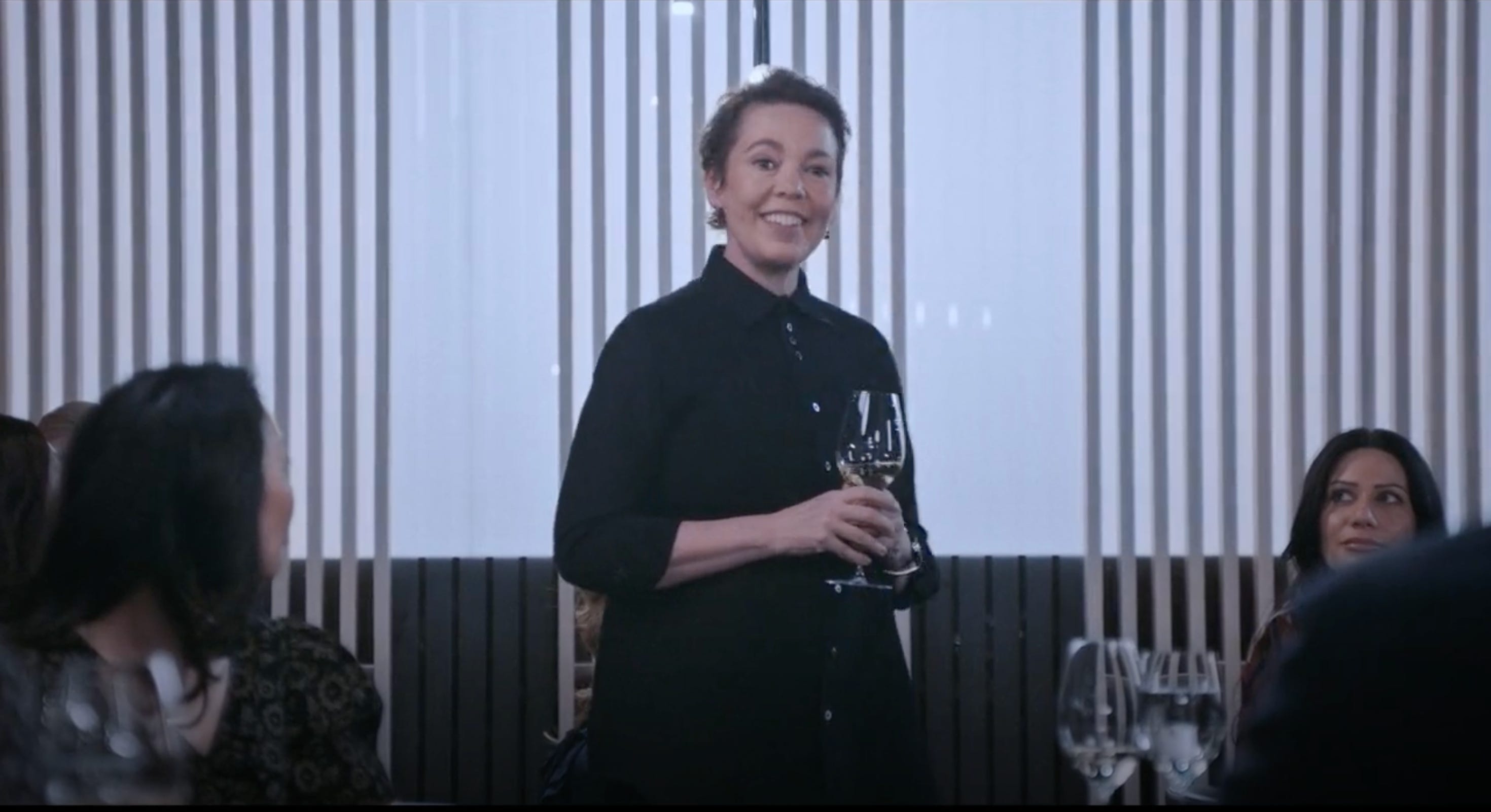Recently I was catching up with an old colleague of mine, a fellow woman product management leader. She recently left her role as Director of Product at a B2B SaaS company. I remember when she joined the company, she touted the importance of its mission and how it aligned with her values. As we caught up, we talked through what had changed for her. Ultimately her growth was stymied and her personal growth was very important to her. Then she said something that deeply resonated with me:
“We [women product management leaders] are all over-achieving masochists. We should start a club.”
She was referring to a specific sub-culture we both belonged to but I think that statement could apply to most people in fields where they are builders or creators. We seek to achieve at it’s highest level. No matter the cost to our health, our relationships, or our families. We seek greatness.
Aren’t we all feeling a flavour of over-achieving masochism right now? Many are living the pain of failure (unemployment) or pushing themselves to the brink of burnout to achieve whatever greatness means to them (successful start-up, TC over $500K, C-suite status, etc). The amount of posturing I see on LinkedIn tells me many are feeling this, no matter what our chosen discipline is.
I had planned on writing about the prevalence of over-achieving masochists in the field of product management. But last night I finished the third season of FX’s The Bear. It changed everything for me about writing on this topic because I was so triggered watching the season finale (episode 10). I saw over-achieving masochism acted out in another context: professional kitchens. This wasn’t unique to product management or even tech.
Instead of focusing on how this term applies to people working in product management, I’m going to explore how one becomes, persists, and perpetuates being an over-achieving masochist through the lens of fine-dining as seen on The Bear.
Let’s do a little primer before we dive in!
If you’re unfamiliar with The Bear let me give you enough context to enjoy the rest of this newsletter.
TL;DR: it’s a show about a professional chef, Carmy Berzatto, who comes home after his brother Mike’s death to take over Mike’s Italian beef sandwich restaurant. Carmy takes over and with time transforms the restaurant into a fine-dining restaurant, which is where we find Carmy and his team at the start of season three.
The show is about food but really its about craftsmanship, leadership, and legacy. Season three, episode 10 — the season finale — sums up the journey we’ve been on with the characters in those three areas and how one can become an over-achieving masochist when focusing on those three things.
SPOILER ALERT: If you want to enjoy the final episode; perhaps come back to read this after you’ve watched it.
How One Becomes an Over-Achieving Masochist: Dedication + Obsession = Success
I don’t believe anyone can achieve success in their chosen field without investing time, energy, and hard work into their craft. The question I pose to you all reading this is: Can one be successful alone on that basis?
My husband is a musician. He is an excellent musician. In my humble opinion, he came into his true voice about seven years ago. That came after twelve years of exploration and iteration. But he’s not famous, not even the modicum of fame that is fame for Canadian musicians. Fame does not drive him. His desire for greatness is found solely in his own heart. He is not obsessed with success at his craft; rather the reward is the craftsmanship in and of itself.
When your craft is your profession; we conflate these two things: skill and success. In the third season of The Bear Carmy obsesses over creating the best menu by continually perfecting a dish. What drives Carmy to this obsession isn’t dedication to the craft alone, we learn in season three he’s pressing himself and the team in the pursuit of a Michelin star. A Michelin star for a brand new restaurant; now that is a big, hairy audacious goal.
The difference between Carmy’s story and my husband’s story is one is looking for outward validation — achieving the Michelin star — and the other is looking inward — creating music in order to feel personally fulfilled.
I’m not saying one is better than the other. But the best of the best in their fields, achieve that much more because they have something to prove. In order to prove that thing, we devote countless hours to our craft and we are obsessed with proving to others and ourselves that it was well worth our time.
How One Persists Being an Over-Achieving Masochist: The Sadistic Mentor Paradox
Pedestals should be reserved for gods, not humans. But we end up putting humans up there anyway. Most commonly we idolize the people who have achieved the success we crave. We look to those individuals for guidance and we view them as something other than human. When we no longer see them as humans, there is a lot of damage that can be done.
In the finale, Carmy confronts an ex-boss (played by Joel McHale) who was a total asshole to him. This person beat Carmy’s confidence into a pulp. As viewers we’ve seen glimpses of it throughout the current season and previous seasons via flashbacks. We’ve seen this boss berate him, yell at him, humiliate him in front of his peers, call him talentless, and tell him he should give up because he cannot cut it. None of this is true. His tactic to mentor Carmy is to terrorize him. He’s a sadistic mentor in Carmy’s career.
This ex-boss was also someone Carmy idolized initially, but who ultimately tore him down instead of lifting him up. In time, from dedication and obsession with his craft, Carmy has proven he is a talented chef through his success. But Carmy doesn’t quite believe it yet — so the anger and disappointment he felt when being called talentless is still raw as if it happened the day before. So when Carmy finally confronts this monster of an ex-boss, he says:
I always wondered what I would say to you if I got to see you again…After fuck you, I don’t have much.
The ex-boss has no idea why Carmy would be so angry with him, nor what impact he had on Carmy, and frankly thinks he did nothing wrong. In fact, he praises his methods:
You were an okay chef when you started with me. And you left an excellent chef.
I’m calling this dynamic the Sadistic Mentor Paradox: when you work for a leader who pushes you towards greatness through negative reinforcement and it works. You become great. The question you’re left with, is would I have been great without them? A fucked-up paradox, indeed.
If I’m honest, it was this scene that made me want to write about this episode. It was really hard for me to watch. I have my own history being an over-achieving masochist (maybe I still am one?) with a sadistic mentor. And foolishly I have my own story of confronting that individual. Like Carmy’s ex-boss, my sadistic mentor had no idea what they did, no idea the impact their methods had on me, and ultimately they were right — without that forging I may have continued to just be an okay product manager.
I don’t think the ends justify the means. I don’t think the writers of The Bear do either. In juxtaposition to Joel McHale’s sadistic mentor is another former boss of Carmy’s featured in the episode, played by Olivia Colman. Her influence on Carmy’s approach to cuisine is told through flashbacks in the previous season and her lessons have a direct impact on how Carmy sets up the kitchen in the new fine-dining restaurant. We’ll come to see the influence both have on Carmy’s leadership style.
The question I have for myself and Carmy going forward is, what are we going to learn from this experience as we continue on the path to greatness?
How One Perpetuates Being an Over-Achieving Masochist: Bringing our Baggage to Leadership
Mine and Carmy’s journeys to greatness were partially paved with shitty leadership. We have no power to change the past; we do have power over the future by choosing to lead the next generation of great craftspeople differently.
Throughout the three seasons of The Bear we witness Carmy’s past influence his present. I mentioned his former boss played by Olivia Colman as a positive influence. It is through channelling her in season two that Carmy brings discipline to the kitchen, encourages high potential staff, and breeds an environment for innovation. Her influence is cemented by a sign that hangs in the kitchen of The Bear — the same sign Olivia Colman’s chef had in her kitchen — that reads: “Every Second Counts.” A true statement on getting food out the door to guests but also a metaphor for life.
On the flip side, Joel McHale’s chef influences Carmy’s behaviour heavily in season three. Once Carmy sets sights on obtaining a Michelin star — when anxiety and pressure ratchet up towards the level of obsession — he starts to mimic his most hated boss. He snaps at the team, he bulldozes their ideas, he fails to communicate changes to the menu, openly fights with the front of house, and demoralizes his most important asset — his sous-chef, Syd.
In the season finale we see Syd have a panic attack. It’s brought on from the toxicity that has taken over the restaurant and the fact that she knows she must leave for a better opportunity in another kitchen. She bears the weight of failing her own sadistic mentor — Carmy. Carmy has created the same environment that tormented him in his early career in fine-dining. All in the pursuit of greatness.
I don’t blame him. I’ve seen my own sadistic mentor come out. I’ve made two people cry in my career, in front of me, in the pursuit of greatness. I don’t know how many more I pushed to that point who may have had breakdowns behind closed doors. My leadership has been tinged with my past. I used to explain my harshness away; “My leadership style is closest to Gordon Ramsay, I’ll drill you but I deeply care.” Funny that always used a chef as my example.
There’s nothing wrong with directness or clarity or pushing someone to their full potential, but did I always make sure it wasn’t personal? I don’t think I always did. Carmy didn’t when he told Syd she could not keep up during service because she was not as good or experienced as him. Pretty much the same thing as being called talentless.
Our Legacy
Our legacy must be forged not in what we create, but learning from the mistakes we make along the way. Learning not flagellating ourselves for the missteps. If we don’t reflect, we’ll bulldoze people in our path to success — and then what? The cycle repeats. More over-achieving masochists will be teaching the next generation how its done.
During the last scene of the finale Carmy glances at his phone and sees that the pending review of The Bear has been posted online. In a series of rapid shots, the viewer reads the article through Carmy’s eyes — he scans the most important words from the good to the so-so to the bad and in the end we get a brief flash of the word: “talent.” A resounding “fuck” from Carmy ends the episode and the season.
Carmy could only see the bad in the review. The over-achieving masochist couldn’t see that the review was not the end but one step toward building a truly great restaurant. The Bear is a restaurant finding its voice but its rooted in the talent of its executive chef. It is a great compliment to be considered talented in his craft; and I think it was intentional to leave the viewer with the word “talent” plus a “,” — there’s talent there but the height of it hasn’t been achieved yet.
Carmy, my fellow over-achieving masochist, I feel you. I’ve read performance reviews with the same scan — my eyes to the most pressing words of praise and criticism. I have craved the validation just like you.
For myself, I want to shed the desire for building legacy through output and accolades. I’m not there yet, but I’m figuring it out. I leave you with the sentiments of the chef who influenced Carmy positively. The whole premise of the series finale is that all these talented chefs gather together for a final meal at the restaurant owned by Olivia Colman’s character. These are her last parting words to her restaurant and to the people who helped her build her legacy:
“I think what I’ve learnt over the years in all the places I’ve worked is, uh, people don’t remember the food — sorry — it’s the people they remember.”
#deathtotheoverachievingmasochist








